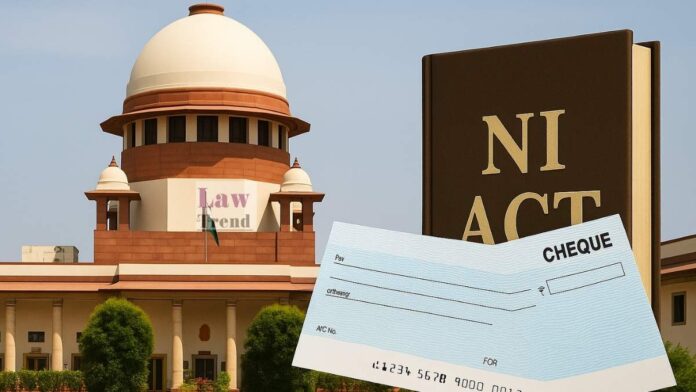The Supreme Court of India, in a significant ruling, has held that a criminal complaint filed under the Negotiable Instruments Act, 1881 (NI Act) for a dishonoured cheque issued on behalf of a Trust is maintainable against the signatory Trustee, even if the Trust itself is not arrayed as an accused party. A two-judge bench
To Read More Please Subscribe to VIP Membership for Unlimited Access to All the Articles, Download Available Copies of Judgments/Order, Acess to Central/State Bare Acts, Advertisement Free Content, Access to More than 4000 Legal Drafts( Readymade Editable Formats of Suits, Petitions, Writs, Legal Notices, Divorce Petitions, 138 Notices, Bail Applications etc.) in Hindi and English.




